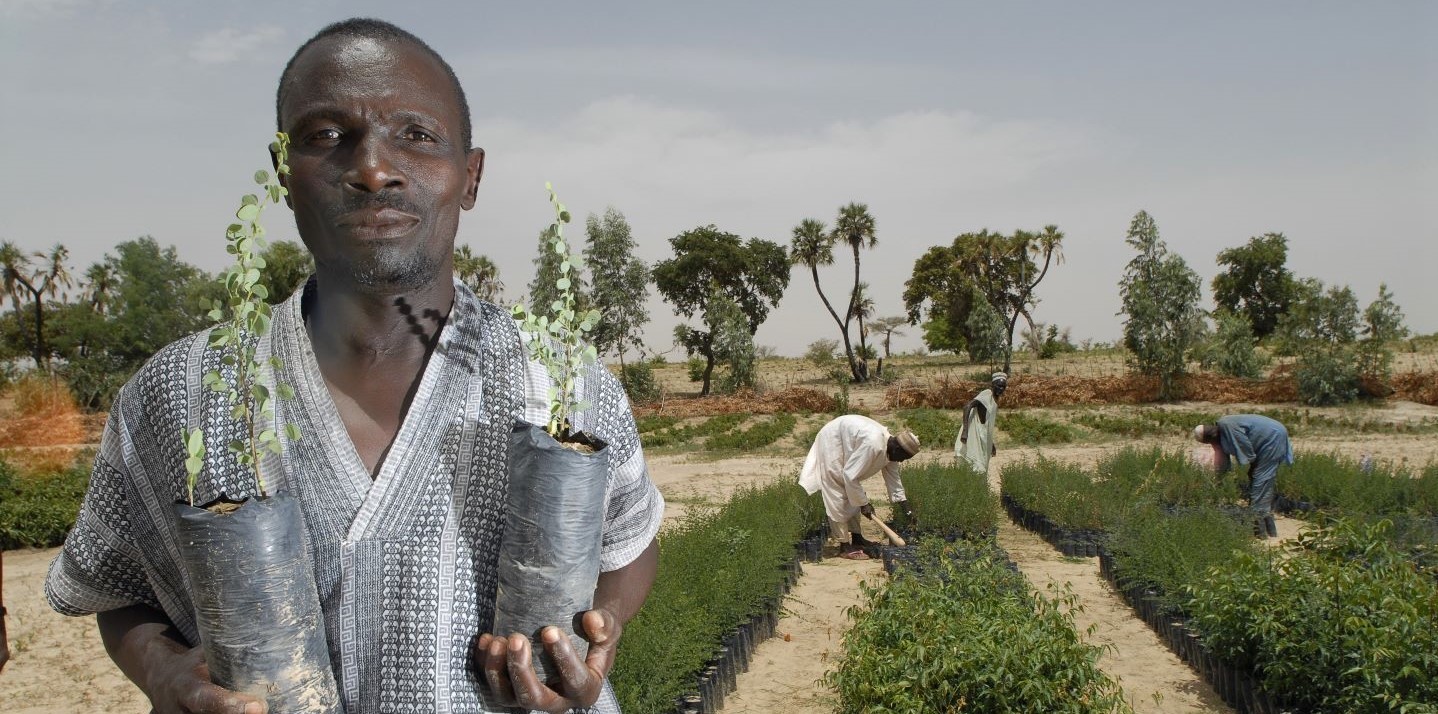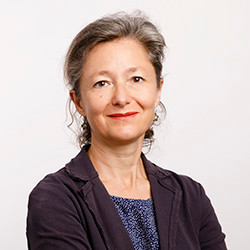Putting rural small-scale farmers at the centre of global climate negotiations – IFAD interactive events during COP26
IFAD Asset Request Portlet
Asset Publisher
Putting rural small-scale farmers at the centre of global climate negotiations – IFAD interactive events during COP26
29 October 2021
Rome/Glasgow, 29 October 2021 – Rural small-scale farmers are disproportionately impacted by climate change, yet seldom have a voice at global forums. At COP26, the International Fund for Agricultural Development (IFAD) has created a space to hear their challenges and solutions. With more than 30 interactive events hosted at its pavilion, IFAD will highlight how small-scale farmers can adapt to a changing climate and ensure global food security.
Solutions exist for small farmers to adapt to climate change but substantial investments are urgently needed. Earlier this week, IFAD warned that staple crops in Africa are at risk from rising temperatures and that COP26 will fail to achieve a lasting impact if world leaders continue to neglect investments in climate adaptation.
WHEN: 3 to 12 November 2021
WHAT: Events at IFAD Pavilion – interact with small-scale farmers and climate experts.
Events will span all aspects of climate adaptation including science and technology, nature based solutions, ecosystems services, the power of gender equality, the role of indigenous communities, the fate of small island states, and financing solutions. Consult the full list of IFAD Pavilion Events.
Media can join the events and ask questions. Interviews with participating farmers and experts can be arranged.
HOW: Follow webcast or register
SOME HIGHLIGHTS
3 November, 09:00-10:30 (GMT): A virtual field trip to Bangladesh to discover how small-scale farmers adapt to climate change
Accompanied by documentary filmmaker Qasa Alom, the audience will virtually travel to Bangladesh to meet and interact with farmers who are part of IFAD-supported projects to discuss their climate challenges and how they are adapting.
Webcast Register Seating limited at IFAD pavilion – see contact below to book
5 November, 16:30-18:00 (GMT): Recipes for Change – British TV weather presenter Clare Nasir and New York-based chef Pierre Thiam cook traditional recipes that have ingredients threatened by climate change.
Clare Nasir and Pierre Thiam will talk about their visits to Nepal and Chad where key ingredients of traditional recipes are under threat from climate change. They will demonstrate how to cook nettle curry and sesame fish with sorrel sauce – recipes they have learned from farmers who are finding new ways to adapt to climate change. People attending in person will have a chance to taste nettle curry.
Register Seating limited at IFAD pavilion – see contact below to book
9 November 12:00-13.15 (GMT): Rural Voices: On Air Dialogues with the people behind your plate
Rural farmers are disproportionately impacted by climate change, but are usually absent from global summits. IFAD and Farm Radio International partnered to survey opinions from thousands of farmers in four African countries. In this event, discover the power of radio to reach some the world’s most remote rural farmers, and hear their aspirations, concerns, and solutions.
Register Seating limited at IFAD pavilion – see contact below to book
INTERVIEWS:
IFAD leaders and climate experts will be present at COP26 and are available for interviews. Farmers from various countries will also be present and available for interviews.
Gilbert Houngbo, IFAD President
Jyotsna Puri, Associate Vice-President, Strategy and Knowledge Department, climate expert
Donal Brown, Associate Vice-President, Programme Management Department
Amath Pathe Sene, Environment and Climate Specialist for West and Central Africa
Paxina Chileshe, Environment and Climate Specialist for East and Southern Africa
Kisa Mfalila, Environment and Climate Specialist for Asia and Pacific
Pierre-Yves Guedez, Climate finance Specialist
Media Advisory No.: IFAD/MA/10/2021
IFAD invests in rural people, empowering them to reduce poverty, increase food security, improve nutrition and strengthen resilience. Since 1978, we have provided US$23.2 billion in grants and low-interest loans to projects that have reached an estimated 518 million people. IFAD is an international financial institution and a United Nations specialized agency based in Rome – the United Nations food and agriculture hub.
